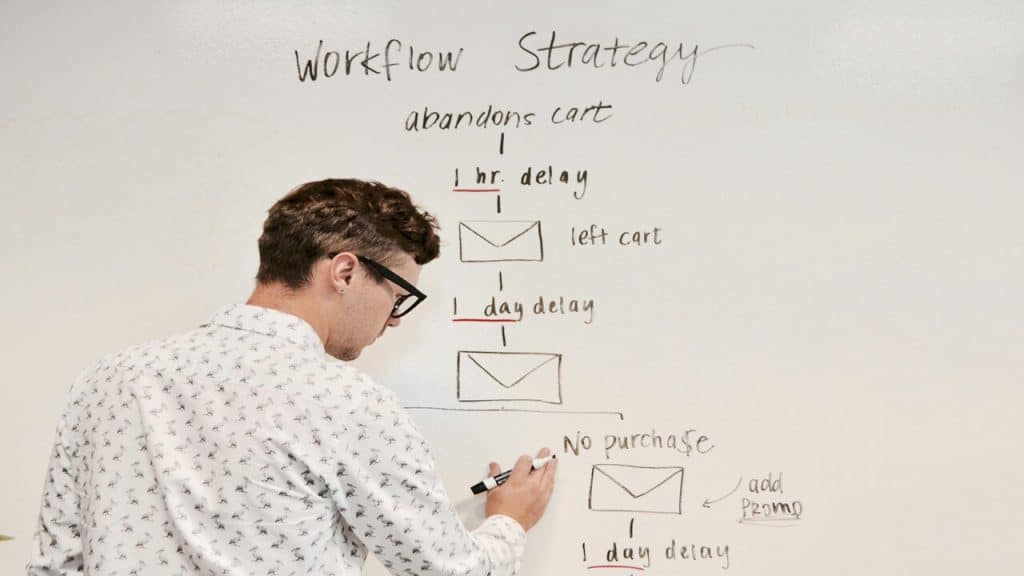
Staying power in your career doesn’t just come from talent or opportunity. It comes from what you do consistently when no one’s watching. It’s the mindset you carry into every meeting, the habits you repeat day after day, and your ability to manage yourself through seasons of stress, change, boredom, and even success. People burn out not just from overwork, but from underinvesting in the habits that sustain them long-term. These are the practices that build professional resilience and keep your name relevant year after year.
1. Guard Your Energy Like a Currency

Your energy is your most precious professional resource–and it’s finite. Learn to say no without guilt. Build buffers into your schedule. Block out focus hours like they’re non-refundable appointments. Burnout doesn’t usually announce itself; it creeps in when you keep pushing past your limits because you’re afraid to disappoint. Long careers are built by people who pace themselves with intention, not those who sprint toward burnout.
2. Do the Boring Stuff Without Needing to Be Motivated

Motivation is nice, but reliability is better. Learn to do high-quality work even when the task is dull or you’re not in the mood. That muscle–the ability to self-start and follow through–gets noticed over time. It’s how people trust you with bigger roles. If you can write the report, update the spreadsheet, or prep for the meeting with zero drama, you become indispensable.
3. Self-Evaluate Before Others Have To

Don’t wait for your boss or clients to tell you what’s wrong. Make it a habit to audit your own performance regularly. Ask: What could I have done better? What systems failed me? Where did I cut corners? The professionals who stay in demand aren’t perfect–they’re just consistently improving, quietly and proactively.
4. Normalize Asking for Feedback Early

Waiting for an annual review to get honest input is like waiting for a fire to burn the house down before grabbing a hose. Get into the habit of checking in early, even informally–“Is this heading in the right direction?” It shows maturity and self-awareness, and it saves you time and embarrassment in the long run.
5. Make Thinking Time Non-Negotiable

Most people are too busy reacting to ever think clearly. But those who last in their careers schedule protected thinking time–an hour to strategize, reflect, or ask themselves better questions. This habit keeps your work aligned with your long-term goals instead of just putting out fires all day.
6. Resist Overidentifying With Your Job Title

Your job is what you do, not who you are. People who wrap their identity too tightly around a role tend to take changes–like layoffs, demotions, or shifting responsibilities–too personally. If you want to last, anchor your self-worth to your relationships, values, skills, and adaptability, not the nameplate on your door.
7. Document Your Wins Without Bragging

You need a quiet record of your achievements, not for ego, but for leverage. Keep a running list of successful projects, metrics, and positive feedback. When it’s time to negotiate, switch jobs, or rebrand yourself, you won’t be scrambling to remember what made you valuable–you’ll have receipts.
8. Treat Your Career Like a Business

If your career were a company, would it be growing, stagnating, or slowly bleeding out? Start managing it with the same seriousness you’d give a business: diversify your skills, assess ROI on your time, and develop contingency plans. No one else is as invested in your long-term success as you should be.
9. Maintain a Life Outside of Work That Actually Fuels You

If work is your only source of identity, joy, or social connection, you’re putting a fragile amount of pressure on it. Build habits outside of your job that restore you–hobbies, friendships, even boredom. You’ll return to work sharper, steadier, and less emotionally reactive when things go sideways.
10. Refuse to Let Email Run Your Day

If your first reflex every morning is to check your inbox, you’re letting other people dictate your priorities. Block specific times for email, batch responses, and make deep work your first task of the day. The people who grow in their careers are the ones who lead their day–not the ones who spend it reacting to pings.
11. Keep Learning Something You’re Not Yet Good At

It’s tempting to stay in your zone of expertise, but long careers are built by those who regularly humble themselves and learn. Take an online course, try a skill adjacent to your industry, or even read outside your comfort zone. This keeps your brain sharp and your adaptability high when the market shifts.
12. Know When You’re Coasting–and Interrupt It

Comfort can turn into complacency without warning. Check in with yourself quarterly: Am I just going through the motions? What would challenge me right now? Professionals with long, fulfilling careers make a habit of self-disrupting before boredom or irrelevance sets in.
13. Build Strong Systems, Not Heroic Bursts of Effort

Success that depends on you working harder than everyone else isn’t sustainable. Instead, focus on building systems–checklists, templates, workflows–that make high performance easier to repeat. Systems save energy, reduce errors, and allow you to scale yourself over time.
14. Don’t Chase Recognition–Chase Usefulness

Recognition comes and goes. But if you’re the one who makes other people’s lives easier–who solves problems quietly and thoroughly–you’ll always be in demand. Rewire yourself to find satisfaction in being effective, not just being applauded.
15. Track How You Handle Pressure, Not Just Results

People notice how you show up when things are messy. Are you the calm in the chaos? Or the flame on the gasoline? Develop self-regulation habits like breathing techniques, journaling, or perspective-shifting. Your emotional intelligence in high-stakes moments may be what gets you the next opportunity.
16. Detach Your Self-Worth from Productivity

You’re not a robot. You’re a human being with fluctuations in energy, focus, and output. Learn to rest without guilt. Some of your best insights come when you’re walking, napping, or doing nothing at all. Your longevity depends not on constant output–but on how well you recover.
17. Play the Long Game, Always

Don’t get too high from praise or too low from setbacks. Careers are marathons with unpredictable weather. Play the long game: build relationships without expecting immediate returns, make decisions that serve your future self, and stay consistent even when no one’s clapping. That’s how you stay in the game–not just for years, but for decades.






Ask Me Anything